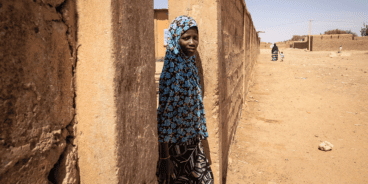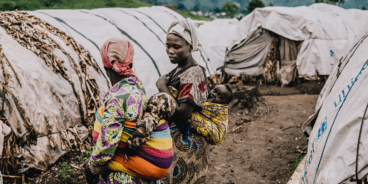
Joint Letter to President Obama regarding the situation in the eastern Democratic Republic of the Congo
Dear Mr. President:
As the situation once again dramatically deteriorates in eastern Congo, the U.S. response to the crisis has patently failed and is out of step with other Western nations. The United States must take immediate steps to address meaningfully one of the greatest ongoing humanitarian crises of our generation. We call on you to appoint a Presidential Envoy to lead a coordinated U.S. response to the crisis, to support the appointment of a U.N. Envoy to the Great Lakes, to support the imposition of sanctions against violators of the United Nations arms embargo on DRC, and, finally, to cut all military assistance and suspend other non-humanitarian aid to the government of Rwanda for its support of the M23 insurgency.
Silence Regarding Rwanda’s Involvement Exacerbating the Problem
Over the past 15 years, U.S. efforts to prioritize quiet diplomacy to address Rwandan involvement in eastern Congo have failed to deter Rwanda’s continued incursions and use of proxy armed groups in the east. While Rwanda has legitimate security and economic concerns, these alone do not justify the repeated violation of DRC sovereignty, the egregious human rights abuses of their armies and proxy forces, and the countless violations of the UN arms embargo. Since the M23 was created in the spring of 2012, U.S. officials continued to place faith in engaging Rwanda in a constructive dialogue. This approach has clearly failed to change Rwanda’s policy, as evidenced by the direct involvement of the Rwandan army in the recent takeover of Goma, as documented by the United Nations Group of Experts.
Failure to Build Democratic Institutions in DRC
At the same time, the government of DRC has continued to demonstrate an inability to bring security to its eastern regions, largely a consequence of its failure to undertake necessary security sector and governance reforms. Any new strategy to bring stability to the region must ensure tangible progress in building DRC’s democratic institutions and the rule of law, including in the crucial areas of electoral reform, army reform, and the trade in natural resources.
ICGLR Process Insufficient for Durable Peace
We welcome the efforts of the International Conference on the Great Lakes Region (ICGLR), and the involvement of regional actors in finding a solution to the crisis. We also recognize, however, that the ICGLR’s stopgap approach and reliance on military solutions will not bring sustainable peace to the region. At best, the current dialogue between the government of DRC and the M23 is likely to result in the reintegration of war criminals into the Congolese army and the continuation of violence and instability in the region. Efforts to achieve a durable peace must be led not by those who continue to perpetuate the conflict but rather by a credible internationally facilitated process.
Recommendations
We strongly recommend that the United States urgently take the following four steps:
- Appoint a Presidential Envoy: The Envoy would be a high-level individual with experience and relationships in the region who would be responsible for developing a unified policy toward the regional crisis. Your Envoy would leverage America’s economic, political, and military influence to ensure that all parties fully cooperate with an international political process, and also work closely with the proposed UN Envoy.
- Call for a UN Envoy to the Great Lakes: The United States should urge the UN to appoint a high-level envoy to lead a credible international political process that addresses the continual cycles of violence and regional interference. This Envoy would work in conjunction with the African Union and other regional and sub-regional stakeholders.
- Support robust UN Sanctions: As a responsible supporter of the UN sanctions regime, the United States should push to impose sanctions on all individuals identified in the UN Group of Experts final report, including senior Rwandan government officials, and those individuals and entities supporting criminal networks through the trade in natural resources.
- Suspend and cut off limited U.S. assistance to Rwanda: The United States should cut all military assistance and suspend other non-humanitarian aid to the Rwandan government, while publicly condemning Rwanda’s support for the M23. Such a step is crucial to encourage all parties to engage constructively in a comprehensive political process.
Absent serious and sustained action, the DRC faces a new period of prolonged violence or even collapse and disintegration. Most importantly, thousands of lives and livelihoods are at stake. In this moment of crisis, the United States has an opportunity to honor not only its values for the respect of human rights and international law but also to meet its interests in the long-term stability of the Great Lakes region.
Signed
- Africa Europe Faith and Justice Network
- Africa Faith and Justice Network
- Atma Foundation
- The Enough Project
- Falling Whistles
- Freedom House
- Global Centre for the Responsibility to Protect
- Global Witness
- Humanity United
- Invisible Children
- Jewish World Watch
- Open Society Foundations
- Refugees International
- Resolve
- United to End Genocide
Related Content


